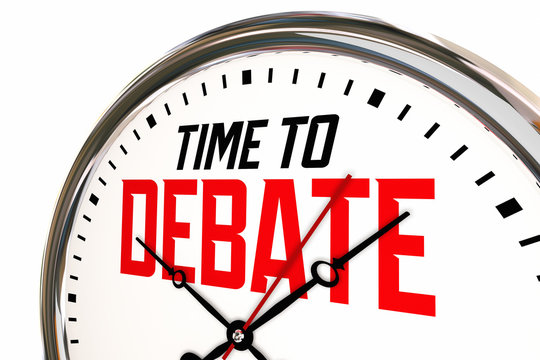As election season approaches, a common question among voters is, “What time is the debate?” Understanding the timing of debates can significantly enhance your engagement in the political process. These events are not just formalities; they are crucial platforms where candidates present their ideas, challenge each other, and interact with voters “What time is the debate?”
The Significance of Debates
Debates play an essential role in shaping public opinion. When asking “what time is the debate,” it’s crucial to recognize that these events often serve as turning points in a campaign. Candidates have the opportunity to clarify their positions and address voters’ concerns directly. For many, debates are the first real glimpse of the candidates in action, making it vital to tune in at the scheduled time.
How Debates Impact Voter Decision-Making
When voters wonder, “what time is the debate,” they are also considering the implications of tuning in. Research shows that debates can influence undecided voters significantly. A strong performance can sway opinions, while a poor one might turn potential supporters away. Voters often remember key moments, which can linger in their minds long after the debate concludes.
Types of Political Debates
There are several types of debates to be aware of, each with its own significance. When you ask, “what time is the debate,” it’s helpful to know which type you’re looking for:
Presidential Debates
Presidential debates are typically the most watched. When inquiring about “what time is the debate,” many are referring to these high-stakes events. They draw national attention and are pivotal in informing voters about the candidates’ platforms.
Vice Presidential Debates
Though they receive less attention than presidential debates, vice presidential debates are still important. Many voters ask, “what time is the debate” regarding these events to understand the candidates who may assume leadership in the event of an emergency.
Primary Debates
Primary debates often feature candidates from the same political party. When you want to know “what time is the debate,” keep in mind that these events can reveal the differing viewpoints within a party, making them essential for party members and independents alike.
Local and State Debates
Local and state debates focus on issues pertinent to specific communities. Voters asking, “what time is the debate,” can find these events valuable for understanding candidates’ positions on regional matters.
Finding Debate Schedules

Knowing “what time is the debate” is crucial for staying informed. Here are several ways to keep track of debate schedules:
Official Campaign Websites
Candidates often post their debate schedules on their official websites. This is a reliable source for determining “what time is the debate” and ensuring you don’t miss any crucial moments.
News Outlets
Major news organizations, such as CNN and NBC, frequently cover debates. They provide updates about “what time is the debate” and often include analyses that can enhance your understanding of the candidates’ performances.
Social Media
Following candidates on social media platforms can also help answer the question, “what time is the debate.” Many candidates use these channels to communicate with supporters, sharing updates and last-minute changes.
Community Forums
Local community boards and forums may also announce debates, particularly for state and local elections. Engaging with these platforms can provide insights into “what time is the debate” and who the candidates are.
Preparing to Watch the Debate

Once you’ve found out “what time is the debate,” it’s essential to prepare effectively. Here are some tips to maximize your viewing experience:
Research Candidates
Understanding candidates’ backgrounds and key issues is vital. When you ask, “what time is the debate,” you should also consider taking the time to read up on their platforms. This knowledge will help you evaluate their performances critically.
Set Up a Viewing Space
Creating a comfortable environment for watching the debate can enhance the experience. When wondering “what time is the debate,” also think about who you might want to invite to discuss the event afterward.
Engage in Discussion
Prepare to engage in conversation about the debate. Knowing “what time is the debate” allows you to gather friends or family to share thoughts and reactions, making the experience more enriching.
Understanding Debate Formats
Each debate usually follows a specific format. When asking, “what time is the debate,” it can be helpful to know what to expect during the event:
- Opening Statements: Candidates introduce their platforms and priorities, allowing you to see how they plan to engage with voters.
- Moderated Questions: The moderator poses questions, and candidates respond in turn. This segment often leads to insightful exchanges that can inform viewers.
- Cross-Examination: Candidates may question one another, providing an opportunity to challenge opponents directly and clarify their own positions.
- Closing Statements: Each candidate has the chance to summarize their key points, making this a crucial moment to remember when asking, “what time is the debate.”
The Effects of Debates on Elections
Debates can have lasting effects on electoral outcomes. As you consider “what time is the debate,” reflect on how these events can shape the political landscape:
Influencing Public Perception
A strong debate performance can lead to increased support and higher poll numbers. When voters ask, “what time is the debate,” they often realize that tuning in could influence their decision-making.
Media Coverage
Following the debate, media analysis can significantly affect public perception. News outlets may highlight key moments and candidates’ strengths and weaknesses, which can influence how voters view them.
Fostering Civic Engagement
Debates encourage discussions about important issues, prompting voters to think critically about their choices. Knowing “what time is the debate” can be the first step toward deeper civic engagement and informed voting.
Common Questions About Debate Timing

When discussing “what time is the debate,” several related questions often arise:
What Time Are Most Debates Scheduled?
Most debates are scheduled in the evening, typically around 8 or 9 PM ET. Always check the specific time to avoid missing any important moments.
How Long Do Debates Usually Last?
Debates generally last about 90 minutes to two hours, which provides ample time for discussion. This duration is essential for fully exploring candidates’ positions when you ask, “what time is the debate?”
Will There Be Multiple Debates?

Yes, there are often multiple debates throughout an election cycle. Knowing “what time is the debate” for each can help you stay engaged with the ongoing electoral process.
What If I Can’t Watch Live?
If you miss the live debate, many news platforms offer recordings and highlights. This way, you can still catch up on what happened and learn more about the candidates, even if you weren’t able to answer “what time is the debate” ahead of time.
Conclusion
Understanding “what time is the debate” is just the beginning of engaging with the electoral process. By preparing to watch, familiarizing yourself with the candidates, and understanding the significance of debates, you can become a more informed voter. Debates offer a unique opportunity to participate in democracy, making it essential to tune in and engage with the discussions that shape our future. Whether you’re a seasoned voter or new to the process, debates are crucial moments to pay attention to as you navigate your civic responsibilities.



